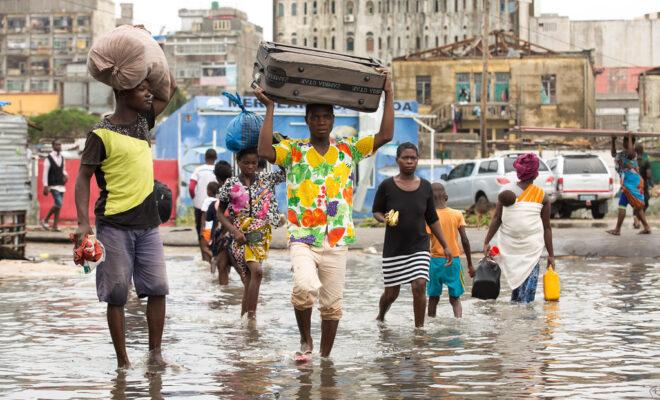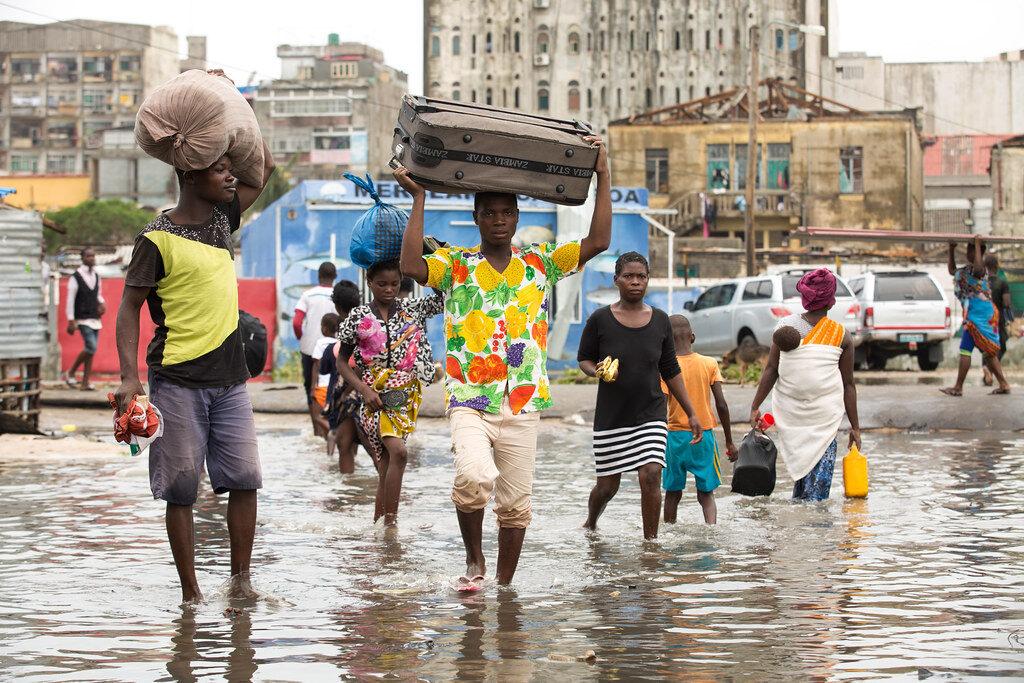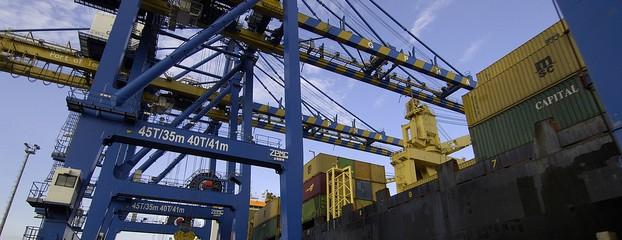The story that became too obvious to ignore in 2019

The climate emergency is not some distant threat. It is here.

In the aftermath of Cyclone Idai in Mozambique, 15-16 March 2019. Credit: Denis Onyodi/IFRC/DRK/Climate Centre.
On the African continent, 2019 was, for me, defined not by the stories that got a lot of attention, but by those that did not get the attention they deserved. This is not intended as a criticism of the journalists, both foreign and domestic, who cover this continent, most of them overworked, underpaid and putting in heroic efforts to report on and from environments that are hostile to the media. It is rather a reflection of a world of multiple, competing crises where few audiences have the capacity for yet more bad news.
It is also a general failure on behalf of all of us in the knowledge economy – from editors and academics to government officials and policymakers – to identify our most pressing challenges and act accordingly.
There are plenty of examples.
The crackdown by Zimbabwe’s government against all forms of opposition has been vicious – perhaps the worst violence that county has experienced for a decade. But while this crackdown was in its most intense phases, in January and August, there were few cries of alarm that made it to the outside world and no wave of international condemnation.
Or what about the ongoing insurgency in Mozambique, where militants with apparent Islamist sympathies are waging a mysterious war against villages and the government? No one yet has been able to tell me convincingly who these militants really are, what they are fighting for, or why some of the biggest names in the mercenary world (Erik Prince of Blackwater infamy and Russia’s shadowy Wagner group) are circling around like sharks in choppy waters.
Speaking of mysterious conflicts, what is happening in northern Chad where there have been several reports – but few details – about a new conflict related to gold mining in the north? Or in Burundi, where President Pierre Nkurunziza has so successfully restricted the flow of information that we really have no idea about how bad things really are (although this recent Human Rights Watch report gives us a disturbing, dystopian glimpse)?
The loudest silence of all
But perhaps the loudest silence of all is reserved for the single greatest challenge facing the continent and the world: the climate emergency.
Reflecting on 2019, the one story that has stayed with me the longest, the one that I think about when I can’t sleep at night, is the arrival of Cyclone Idai on southern Africa’s east coast. The most powerful storm in Mozambique’s recorded history – before it was superseded by Cyclone Kenneth just a month later – devastated vast swathes of Mozambique, Malawi and Zimbabwe. More than 1,300 people died. A total of 1.8 million were affected in some way. Basic infrastructure was totally wiped out by the floodwaters, as were entire villages and their surrounding farmlands.
Matias Guente, one of Mozambique’s most experienced journalists, covered the aftermath of Cyclone Idai for the Mail & Guardian from Beira, the country’s second largest city, which had been blown over by the winds and then almost totally submerged. One detail of his reporting has etched itself in my memory: people were so hungry, he wrote, that they had resorted to fishing individual grains of rice from the floodwaters.
What was also clear from his reporting was the near-total unpreparedness of the government to deal with a natural disaster on this scale. This is partly a failure of governance, but mostly due to an absence of resources. In the wake of Hurricane Katrina, the US government contributed $120 billion to the relief and reconstruction effort (another $36.5 billion came from charitable donations and insurance claims). After Cyclone Idai, just $1.2 billion has been pledged. Most of that comes from international donors and not all of it has been disbursed.
We know theoretically that climate change is going to hit the poorest countries hardest. But seeing that theory manifest itself so brutally in Mozambique should set alarm bells ringing all over the world. And, if not that, at least in southern Africa, which will be dealing with the fallout from Cyclone Idai and new unexpected extreme weather events for the rest of the region’s future.
Instead: silence. Cyclone Idai struck in March. South African politicians were already in full campaign mode by then ahead of the general election in May. Climate change was on almost nobody’s agenda. Nobody in a position of power in Africa’s most influential economy thought it would be a good idea to include climate change mitigation strategies in their campaign manifestos. Certainly no one in government appears to be planning for it, even if is already wreaking havoc on the country’s agricultural cycles and power generation ability.
Take, for example, the unprecedented stage 6 blackouts that South Africa experienced this December. Although rooted in corruption and poor governance, the rolling power cuts were precipitated by a week of relentless, unseasonal rain which soaked the coal supplies, rendering them unusable. There is some dark irony in the fact that one consequence of increasingly unpredictable weather patterns is that it is becoming harder for South Africa to burn fossil fuels.
And what comes next? One senior humanitarian official told me that their organisation is projecting that tens of millions of refugees are likely to make their way to South Africa in the next few decades as tropical regions become more arid and inhospitable. No amount of populist xenophobia is going to stop the influx. We need to put policies in place to cope and we need to set them in motion now.
Of course, this is not just a southern African problem. A changing climate is intricately linked to the conflict along the Sahel belt and in the basin of the disappearing Lake Chad. It is a factor in why it is getting harder to fish in east Africa’s Great Lakes. It helps to explain why Egypt’s farmers do not have enough water for their crops.
But it’s not all bleak.
I reported on the impact of Cyclone Idai in southern Malawi. I was expecting to find scenes of devastation and loss. While these scenes certainly existed, my preconceptions were dumbfounded by the way in which so many communities had prepared themselves for extreme weather. One young man had built his house in a village that was on higher ground than his own village so he could escape with his family when the floods came. Another village had instituted a low-tech early warning system and designated safe gathering points which meant that no one from there died in the floods.
The message from every village elder that I spoke to was the same. We have been observing the weather for decades, they said, our lives depend on it. It is becoming more extreme and unpredictable. Best be prepared.
If I have learnt one thing from reporting on the African continent in 2019, it is that the climate emergency is not some distant threat. It is here and it is in the process of fundamentally altering the politics and economics of this continent. Best be prepared.






F*ckin’ remarkable issues here. I’m very satisfied to look your article. Thank you a lot and i am looking forward to touch you. Will you please drop me a e-mail?